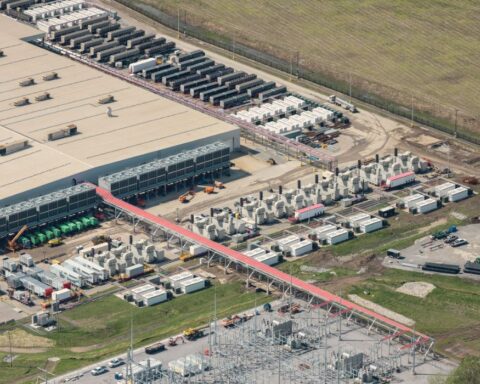Four climate and energy court cases over the last month point to the potential for legal challenges to help control the greenhouse gas emissions at the heart of the global climate emergency and remove obstacles to renewable energy development.
In a significant win last week, the Court of Session in Scotland ruled that the United Kingdom’s consent for two major offshore oil developments was illegal, after their environmental assessments failed to factor in the climate impacts of burning the fossil fuels they extracted, BBC reports. The judge, Lord Ericht, ordered the project owners to seek new approvals before they can go into production.
The Rosebank development, 128 kilometres west of Shetland in the North Atlantic, is the United Kingdom’s biggest undeveloped oilfield, The Guardian writes. It is 80% owned by Norwegian state fossil company Equinor. The smaller Jackdaw development, owned by Shell, is located in the North Sea.
Lord Ericht “said work on both fields could continue while the new information was gathered but no oil and gas could be extracted unless fresh approval was granted,” BBC says. That was enough for U.K. climate campaigners to declare a major milestone. “The climate science is crystal clear that we can’t create new oil and gas fields if we’re going to stay within safe climate thresholds,” said Tessa Khan, executive director of Uplift, one of the lead organizations in the fight to stop Rosebank.
“The age of governments approving new drilling sites by ignoring their climate impacts is over,” said Greenpeace U.K. senior campaigner Philip Evans. “The courts have agreed with what climate campaigners have said all along: Rosebank and Jackdaw are unlawful, and their full climate impacts must now be properly considered.”
Earlier last month in Ireland, the High Court overturned a planning authority’s decision to turn down a 13-turbine wind farm in County Laois. Oslo-based power generator Statkraft argued that planners at the local agency, An Bord Pleanála, “had discretion to override local development plans in the bigger pursuit of climate action but did not use this properly,” freelance journalist Isabella Kaminski wrote on LinkedIn.
And then, “what could have been a prosaic planning dispute resulted in a blistering judgment that strongly criticizes An Bord Pleanála for talking about the climate emergency but failing to walk the walk, particularly in allowing the development of renewable energy infrastructure,” Kaminski added. “Judge Richard Humphreys said the decision valued visual impacts over the many urgent benefits of combating climate change, which suggests a ‘deeply skewed set of values and an unwillingness to face new realities.’”
In Ontario, the seven youth litigants behind the long-running Mathur v. Ontario climate justice case are urging the Supreme Court of Canada to hear their “game-changer” lawsuit quickly after the provincial government asked the justices to weigh in late last year. “I was 12 years old when we took the Ontario government to court for the first time. Now, I’m in my first year of university,” youth applicant Zoe Keary-Matzner said in a January 28 media release. “We are counting on a sense of urgency from the courts that meets the urgency of the climate emergency we’re in.”
“This case has spanned several years, and multiple levels of court,” agreed lawywer Fraser Thomson, Ecojustice’s climate director. “With our environment, our health, our wallets and our futures at stake, nothing needs our attention – and the urgency of the courts – more than climate change.”
And in the United States, the year ended with the American Petroleum Institute and the U.S. Chamber of Commerce filing suit against the new Climate Superfund Act that makes Vermont the first state to require polluters to pay for damages and applies the proceeds to the costs of climate harms, Inside Climate News reports.
“The suit will likely take years to play out, but its arguments could affect how similar bills in other states proceed,” Inside Climate News says.
This article was first published by The Energy Mix. It has been edited to conform with Corporate Knights style. Read the original story here.







